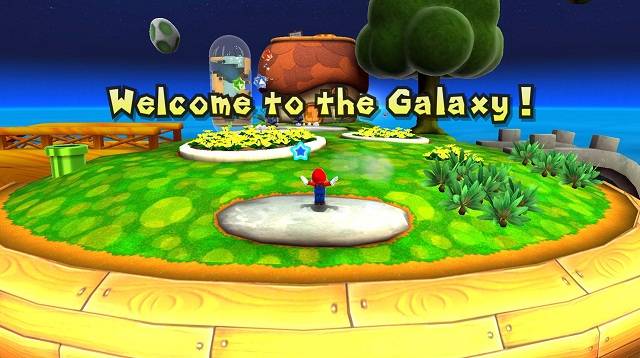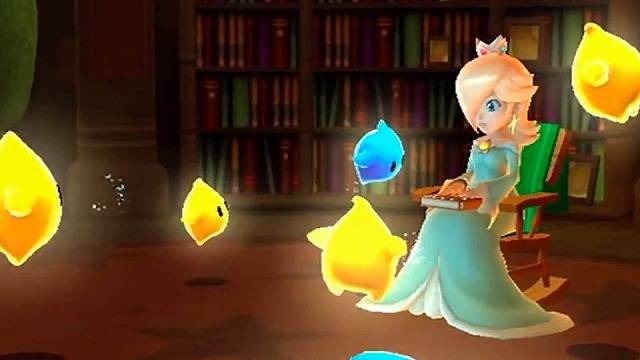LogFAQs > #951569831
LurkerFAQs, Active DB, DB1, DB2, DB3, DB4, DB5, DB6, DB7, Database 8 ( 02.18.2021-09-28-2021 ), DB9, DB10, DB11, DB12, Clear
| Topic List | Page List: 1 |
|---|---|
| Topic | Board 8 #sports Discord Ranks Their Top 100 Video Games Finale: THE TOP 10 |
| Naye745 03/10/21 5:16:57 PM #111: | 7. Super Mario Galaxy (Wii, 2007) Our story begins a very, very long time ago with a young girl.  SMG is probably the perfect demonstration of the ways in which the mainline Mario series continually manages to reinvent itself. After the relative disappointment of Mario Sunshine, Galaxy shifts its focus onto more "traditional" linear levels rather than vast worlds to explore and search for secrets. Of course, there's still some hidden power ups and stars at points, but the game is much less about the movement capabilities of Mario and moreso about new abilities and wildly creative levels. And here I'm still burying the lede just a little bit - the game's levels are composed of loosely connected planetoids with their own gravitational pull. This gimmick has so much creative potential, at times it feels like Galaxy just scratches the surface of what sorts of challenges and ideas are possible. And gameplay-wise, it's smooth as hell; the camera shifts between following behind the player or in a fixed spot as the situation demands. The controls are relatively simplified, too - you can get an extra jump to adjust any misfires with a wiimote flick, but there's very little additional complexity versus say, Sunshine or Odyssey. But the #1 thing that sells me about SMG1 is its theme; y'know, the whole space thing that's sold by its very title. There's a lot of stuff done really well by centering Mario around a space theme: it introduces Mario to characters and environments not really touched upon by the series before, it allowed for the creation of the traveling-between-planetoids and gravitational madness that comprises the bulk of the gameplay, and it gives the game a distinct aesthetic, as evidenced by its visual presentation and music. And wow, the soundtrack is still absolutely stunning. There's the breathtaking triumphal tracks like Gusty Garden and Buoy Base, Good Egg and Melty Molten; and there's serene and beautiful tunes like Space Junk, Gateway, and the Comet Observatory; and everything is fully orchestrated, capturing the grandeur and impressiveness of the games themselves. It's a testament to how fully baked the concepts of SMG are that all of the individual pieces really do feel fully realized - the music heightens the tension of the individual stages while bringing out the themes of the game's setting and story. I also feel a little compelled to address Galaxy vs. Galaxy 2, since nearly everyone who has placed 'em thus far has essentially paired the two or found it impossible to interchange the two. I do think the games very much are complementary to one another - as I said earlier, Galaxy had so many ideas to explore that 2 felt almost essential. I think gameplay-wise, they're pretty close; I like the ways SMG2 expands on some of the more novel concepts briefly demonstrated in Galaxy 1: ball rolling, bubble blowing, motion-controlled races. I also think some of the 2D-fixed levels really cleverly expand on things like Bee Mario movement and gravity swapping. And although I take issue with some of the execution, the extra 120 Green stars are a much better post-120 Star bonus than SMG1's "uh...play everything again, but with Luigi I guess?" That said, I still rather prefer the base structure of SMG1's levels - I like their fleshing the worlds out with more individual stars, and giving each one two comet stars, as it helps delineate the "main" areas and flesh them out as full-on worlds. There's also just the tendency of the sequel to just sort of copycat some of the original at times (and of course, some of this is intentional): there's replicated versions of a lot of SMG1's big levels, like Gusty Garden, Freezeflame, and Good Egg Galaxy. And I find SMG2's hub area oddly frustrating - there's what amounts to basically a giant level select screen, which I think is generally good, but you're constantly broken out of it to interact with fairly unnecessary elements on the "Faceship". It's a frustration that they didn't just fully commit to a full-on level select instead of trying to preserve some of the Observatory's hub-area structure with a star bit bank and a handful of random unnecessary creatures to speak with.  All of this is well and good, and enough to place Galaxy firmly near Odyssey or 64 on my list with the best 3D Mario games. So I'll apologize in advance for delving into some deeply personal stuff to cap off why this game means a lot to me specifically, and ended up pushing its way into my Top 10. I've struggled with depression for most of my adult life - it's something I've worked on a lot and found a lot of ways with dealing with, but something that never really goes away and something I accept will be with me in some capacity for the rest of my life. For that and all sorts of other reasons, I gravitate toward games where atmosphere and ambiance are heavily emphasized. And on that note, I particularly love space as a theme (see: all the Metroid games on the list); there's something unique about its sense of isolation and tranquility that feels like it replicates some understanding of what it's like to deal with a thing as weighty as depression; a sense of loneliness and emptiness that is also beautiful and captivating. And Galaxy, for a lighthearted Mario game, bakes in these themes constantly and effortlessly. I know there's some amount of personal bias here, but there are too many cues here for me to be completely projecting. The game's soundtrack, as mentioned beforehand, shifts tone often between sweeping grandeur and quiet simplicity - and some of the most notable points, such as the introduction tutorial before the first "actual" level, are punctuated with these more subdued tunes. There's also an entirely optional section of the game - Rosalina's Library - which is a beautifully illustrated children's storybook ostensibly about Rosalina's origin story, set to a quiet somber score, that is simultaneously both lovely and tragic. The fact that the designers included such a feature in the game, where Galaxy 2 is constantly pushing you into plowing through more new stages, shows the tonal shift between the two games. Galaxy 1 is much more interested in an all-encompassing experience - letting the player bask in the game's setting and world as much as necessary while moving through its various challenges. I think there's something to the fact that my favorite music piece in the game plays during a one-off level with only two stars in it, and it always feels like one of the best parts in the game, despite being little more than a footnote: https://www.youtube.com/watch?v=z29bt-wjS88 As I didn't own a Wii, I missed out on this game for a decade before getting the chance to give it a go in early 2017, and I would argue (among other things) it's why I've been brought back into gaming after being mostly out of it for quite a few years. It blew me away by its ability to overwhelm me with emotion - whether through its soundtrack, gameplay, atmosphere, or (usually) some magical combination of the three. It was a game where even despite being so much more linear and limited in "explorability" relative to its 3D predecessors, made me want to scour every corner of its worlds for secrets, just to bask in the glow of its perpetually imaginative worlds and music. I don't think I can ever totally replicate the feeling of playing this for the first time, but it still always stirs up a little bit of that sense of wonder and joy inside me on any replay. And that's something special, and very close to my heart, that only a few things can or will ever manage to muster. --- it's an underwater adventure ride ... Copied to Clipboard! |
| Topic List | Page List: 1 |